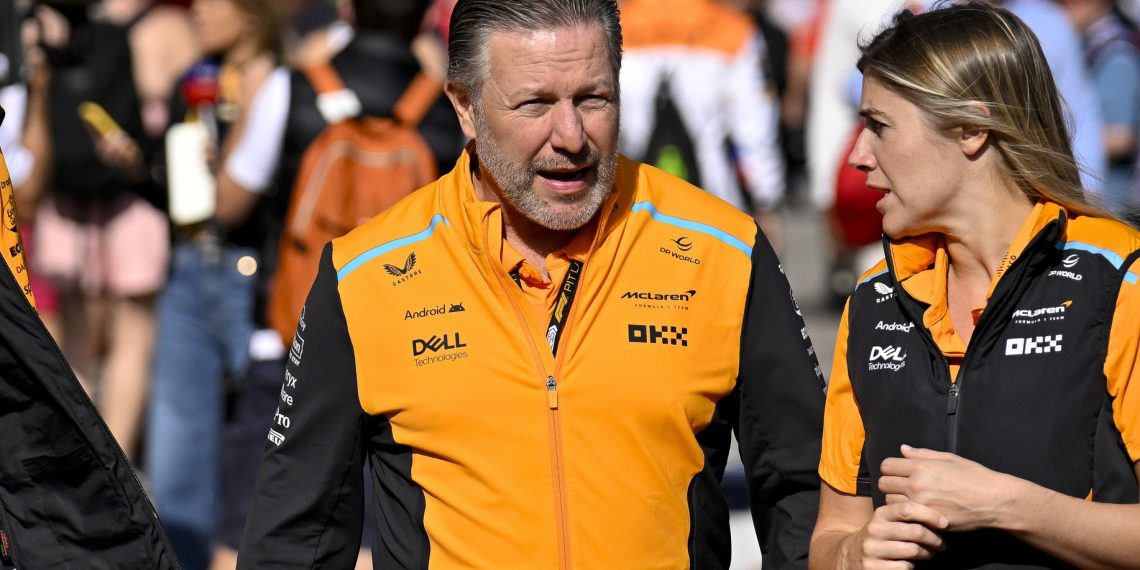In a sport where split-second decisions determine glory or disaster, McLaren CEO Zak Brown has unleashed a stinging critique of the FIA’s stewarding system, declaring that Formula 1 is “setting itself up for failure” by refusing to employ full-time referees. With controversy swirling around recent rulings and growing frustration from teams and drivers alike, Brown’s explosive remarks add fuel to an already raging debate over the competence and consistency of race officiating.
The Officiating Firestorm: FIA Under Siege
F1’s governing body, the FIA, has been in the eye of a storm, facing relentless backlash for a string of contentious rulings. Teams and fans have been left fuming at inconsistent penalties, leaving calls for permanent stewards echoing louder than ever. However, FIA President Mohammed Ben Sulayem has made it clear—if teams want full-time stewards, they’ll have to pay for them.
Brown, never one to shy away from a fight, has pushed back hard against this notion, arguing that the financial burden is minimal compared to the stakes involved. “Here we are in a multi-billion-dollar sport, and everything is on the line to make the right call,” he stated. “I wouldn’t want to be a referee in any sport—it’s a thankless job. But in F1, we’re simply not set up for success without full-time stewards.”
The 53-year-old believes that just like in football, where referees are held accountable and trained full-time, F1 needs dedicated officials who fully understand the nuances of the sport rather than a revolving door of part-time decision-makers.
Is the F1 Rulebook Too Rigid? Brown Calls for Reform
Beyond stewarding inconsistencies, Brown also fired shots at the strict and overly prescriptive nature of the F1 rulebook, arguing that it often fails to translate into real-world racing scenarios. His prime example? Max Verstappen.
The Red Bull ace has earned a reputation for pushing the absolute limits of the rulebook—and, according to Brown, it’s because he understands its flaws better than anyone else. “The rulebook is too prescriptive,” Brown explained. “There’s this whole idea that whoever’s at the apex first has the right to the corner—but what if they can’t actually make the turn? Max has done an incredible job of knowing exactly what the rules say and using them to his advantage.”
Brown’s comments underscore a growing concern that F1’s regulations are failing to keep up with the dynamic and unpredictable nature of modern racing. Instead of ensuring fair competition, the current system may be inviting loophole exploitation by drivers who know exactly where the gray areas lie.
The FIA Strikes Back: Crackdown on Criticism
The FIA isn’t taking the criticism lightly. In a move that has raised eyebrows, the governing body has banned public attacks on race officials and introduced penalties for “abusive language” directed at the stewards. While this measure is meant to protect the integrity of race control, many see it as an attempt to silence justified frustration from drivers and team bosses.
As F1 hurtles toward an uncertain future in its battle over officiating standards, one thing is clear: the sport can’t afford to keep getting it wrong. Whether it’s through full-time stewards, clearer regulations, or fundamental reform, change is inevitable. And if the FIA continues to resist, the growing discontent from teams like McLaren suggests that the fight for better officiating is far from over.










